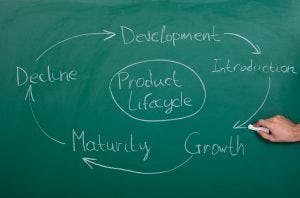April 6, 2021

Cell and gene therapy firms should consider a ‘lifecycle approach’ to process development and manufacturing to reduce cost of goods, says ElevateBio.
Developing cell and gene therapies is highly complex. Such work requires specialist skills and hard to make materials like vectors, the lack of capacity for which has been raised as a constraint in the scientific and mainstream press.
But cell and gene therapy firms also need to keep commercialization in mind according to Mike Paglia, COO at cell and gene therapy research, process development, and production center ElevateBio.

Image: iStock/AndreyPopov
“The limited vector production capacity, a lack of skilled staff and an over reliance on manual handing are some of the main issues cell and gene therapy firms face.
“However, not taking a lifecycle approach to the development of gene and cell therapies can also have a negative impact. Developing commercially viable processes from the beginning has the short-term impact on a product lifecycle by accelerating a path to ‘proof of concept’, but has the longer-term impact of getting the process right the first time thereby eliminating this risk of costly and risky clinical comparability studies.”
Lifecycle infrastructure
To that end, ElevateBio is focused on robust, viable processes Paglia told us, explaining “The goal of our model is to develop high quality transformative therapies in a cost-effective way so that accessibility and affordability can be realized in the commercial setting.
“Therefore, it is not only about waste reduction and efficiency, but to make more potent products to that scale, which can be reduced while still maintaining ample medicinal supply. Having fully integrated quality, R&D, process development and manufacturing teams all under one roof is how we can accomplish this.”
And the firm plans to increase capacity. In March, it announced it would use $525 million raised in a recent series C financing to develop platforms, build its cGMP manufacturing network, form partnerships and advance its own cell and gene therapies.
Paglia confirmed this, adding “We are broadly partnering with innovators, whether academic or industry, who have highly groundbreaking science so we can help them to design, manufacture and develop their therapies to transform the lives of patients.”
Manufacturing
ElevateBio’s manufacturing capacity – known as BaseCamp – consists of 140,000-square-feet of manufacturing, lab and support space.
Paglia told us the idea is to provide ElevateBio’s partners with “an infrastructure for the entire product life cycle; a world- class team of drug developers and operators who can get the job done successfully; and a diverse and growing portfolio of innovative cell and gene therapy products.
“BaseCamp was designed to benefit innovative cell and gene therapy portfolio companies and strategic partners. ElevateBio provides the tools, time, and environment to innovate, develop, and accelerate potentially life-transformative therapies.”
Technology toolbox
Another common challenge for cell and gene therapy developers is the lack of purpose build technologies that often forces them to repurpose systems. ElevateBio approach to this problem has been to develop dedicated technologies according to Paglia.
“In the past, our team developed novel processes for cell and gene therapy manufacturing by repurposing equipment from other industries” he said, citing the use of emergency blood salvage devices to wash and process large volumes of cell therapy products as an example.
“We have developed a toolbox of unit operations that can be used to rapidly translate cell and gene therapy products allowing them to enter the clinic quickly at a lower cost of goods.
“This allows us to make the right process decision for the product and clinical design intent, but also keeps us at the forefront of the industry when new technology becomes available so we can adapt and implement into our library of capabilities.”
About the Author
You May Also Like




